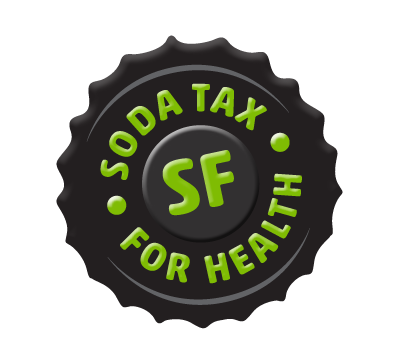San Francisco’s Soda Tax funded efforts hold the potential to change the health status of community members most burdened by chronic diseases and the environments in which their health is shaped. Thus, much of the work focuses on changing policies, systems, and environments to address social determinants of health, including reducing barriers to housing, healthy food and beverages, education, safe neighborhoods and environments, employment, healthcare, etc. To that end, San Francisco’s Department of Public Health (SFDPH) and Human Services Agency (SFHSA) have partnered up to increase knowledge of public benefits such as CalFresh, Medi-Cal, CalWORKs and County Adult Assistance Program/General Assistance (CAAP/GA). Soda Tax-funded organizations attended a training last year about how individuals can qualify for the various public benefits available in San Francisco. Some organizations also trained their staff to submit benefits applications on their clients’ behalf via an online application portal. Continuing in the partnership, guest blogger, Makena Nakaji, SFHSA Communications Intern, provides an update on the recent Medi-Cal Expansion.
By Makena Nakaji, SFHSA Communications Team Intern
More than 250,000 San Franciscans rely on Medi-Cal to receive access to healthcare benefits. Medi-Cal provides eligible individuals and families free or low-cost medical visits, hospital care, prescription drugs, pregnancy-related treatment, dental coverage, and other medical services. This program has allowed many Californians with limited income and resources to access a wide variety of healthcare services they would not otherwise have.
As of January 1, 2024, there have been two major updates to the eligibility guidelines for Medi-Cal. With these expansions to the program, more Californians will be able to receive financial support for healthcare services. Being able to reach more people with these services will help combat health disparities as the state of California is working toward breaking financial barriers in healthcare. Undocumented Californians aged 26-49 will be able to get full Medi-Cal, regardless of immigration status. This ensures that those eligible will receive access to affordable healthcare. All other Medi-Cal eligibility rules, including income limits, will still apply. Those who receive restricted scope Medi-Cal (also known as limited Medi-Cal or emergency Medi-Cal) will automatically get full Medi-Cal. These expansions are huge improvements to the Medi-Cal system and creates a more inclusive community for those who need support. Healthcare shouldn’t be the reason a family struggles to make ends meet, which is why this change will help so many more people.
- Restricted scope Medi-Cal recipients should check their mail in the coming months for more information about their new added benefits.
- If any Medi-Cal recipients have moved in the last three years, please encourage them to update their address with SFHSA.
The second change to the eligibility is that asset limits are ending. Even if someone has rental properties, a second home, retirement funds, or savings, Medi-Cal may be available to them.
Lots of changes have been made, but to make it easier, people can use BenefitsCal.com to easily check to see if they qualify for benefits, apply for benefits, upload case documents, and maintain their Medi-Cal and other benefits! Community Based Organizations (CBOs) that help clients apply for benefits can also create a CBO account on BenefitsCal.com.

